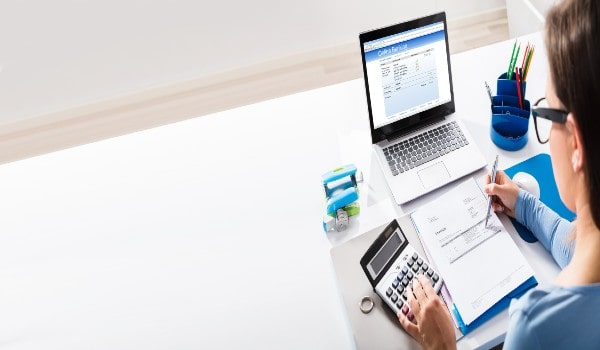Wednesday, 14 Aug 2019

The mere mention of the word ‘tax’ makes business owners anxious as they are either not ready for filing their returns or are busy updating their books. This is the reason why most organisations rely on the best bookkeepers in Melbourne when the tax time is around the corner.
As expected, we are again sitting on the same month when the management teams of small businesses are scratching their heads over identifying the deductions that can be claimed. Another factor that has come into play from 1 July 2019 is the Single Touch Payroll (STP) system which has brought forth an enhanced way of reporting tax and super information.
Thus small businesses in Melbourne need to take help from their bookkeepers to prepare for the tax season. To make things easier, we have compiled a small business tax checklist which will serve as a handy guide to get things sorted.
The new system has come into force, and most small businesses are still struggling to get ready for STP in Melbourne. Your bookkeeper can help you understand the intricacies which involve reporting payroll activity after each payday through Standard Business Reporting.
Thus small businesses will now have to submit the reports to the ATO online with the help of software that provides STP. Businesses with less than 19 members in its staff are now obligated to follow STP from 1 July 2019. However, micro-businesses which employ less than four people can opt for other options.
So depending on the size of the organisation, you must pay heed to this new reporting criterion when filing taxes. You need to take your bookkeeper’s help to become STP compliant, which will also aid you in saving a lot of time and effort.
The ATO has become more vigilant of the deceitful ways used by business owners in Melbourne to hide income and pay lower tax than expected. Working on the same, they have announced that all the unreported cash-in-hand payments made to employees will not be tax-deductible from 1 July 2019.
Also, they will be taking a look at the cash payments which are not in compliance with the PAYG withholding obligations. Additionally, if an organisation makes a payment to a contractor who does not have ABN and they do not withhold any tax, then it will not be tax-deductible from 1 July.
The Fair Work Commission (FWC) announced an increase of 3% to minimum wages starting from 1 July 2019. This will not be applicable to those employees who are already getting more than the minimum wage rate. So you will have to pay more to your employees, which will make an impact on the taxes.
Consult your bookkeeping company in Melbourne to know more about it. Also, ensure that your bookkeeper is using updated accounting software like XERO, which can help you to do a lot more in less time.
With this move of the ATO, the threshold amount that an organisation can write off instantly has been raised to $30,000 till 30 June 2020. Leveraging it, organisations with a turnover of $10 million or less can claim a deduction for every asset that was priced lower than the threshold, which was applicable when the asset was first installed or utilised.
There are different thresholds for different assets, so you need to ensure which is applicable to your Melbourne-based business. Additionally, it allows businesses with turnover ranging between $10 million to $50 million to claim a deduction of up to $30,000 for every asset that was used or installed during 2 April 2019 to 30 June 2020. So your bookkeeper must keep an account of all such purchases and installations to claim deductions. You can write down the purchases made below $30,000 instantly. Also, ask your bookkeeper to keep track of the depreciation level of your fixed assets.
The TRPS now covers various industries, and the government made an announcement regarding the same in 2018. It stated that a list of businesses will have to report the payments they make to their contractors on the taxable payments annual report (TPAR).
The industries mentioned in the list included road freight services, cleaning services, courier services, building and construction services, IT services, security, investigation or surveillance services and government entities operating at the federal, state and territory levels.
Your bookkeeper can help you in updating the records and submitting these reports in a timely manner to the ATO.
Your bookkeeper will gather all the records of receipts, bills and invoices and align them with the bank transactions of your business in Melbourne.
This information must include income from sales or services, interest received from banks or investments, income from rented property for the business, shares acquired or traded, business plant purchased or sold along with assets, Capital Gains Tax information, GST information, other sources of income, employee payment summaries, travel expenses, insurance information, vehicles used for business operations, etc.
Small business owners often claim deductions on personal expenses or do not have the required records to prove the operating costs as business expenses.
This is a wrong approach which needs to be avoided. You can take help from your bookkeeper to claim deductions in Melbourne which include business travel, motor vehicle used for business purposes, repair and maintenance of business assets, and general operating expenses including internet, stationery, insurance, etc. If you own home-based business in Melbourne, you can claim deduction on occupancy expenditure and running costs including phone, electricity, gas and more.
Besides all the above-mentioned steps, you must conduct a stocktake at the end of the financial year with the help of your bookkeeper to assess the amount of stock possessed by the business. This amount also impacts your taxes and gives you an idea of the financial health of the organisation. So go ahead and utilise this checklist to file your taxes in Melbourne on time and in a streamlined way.